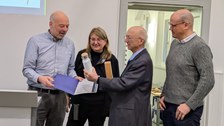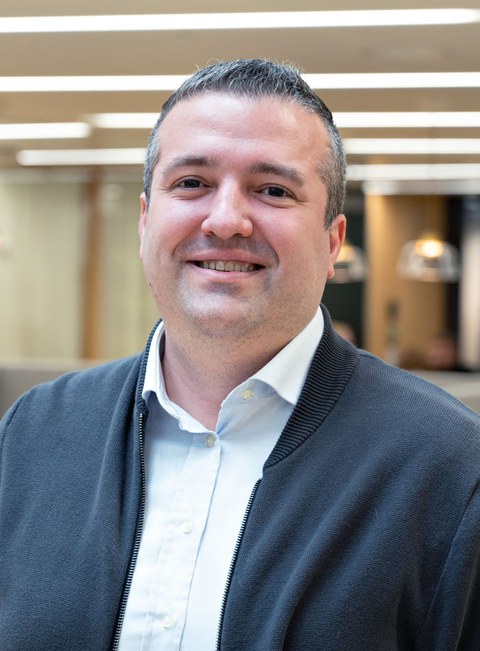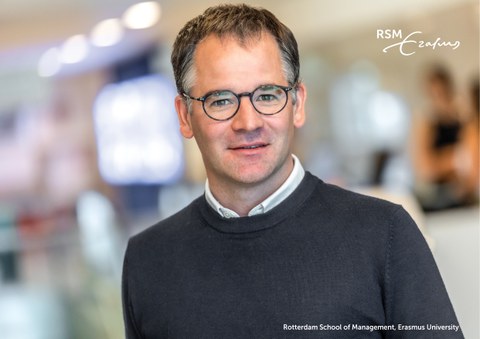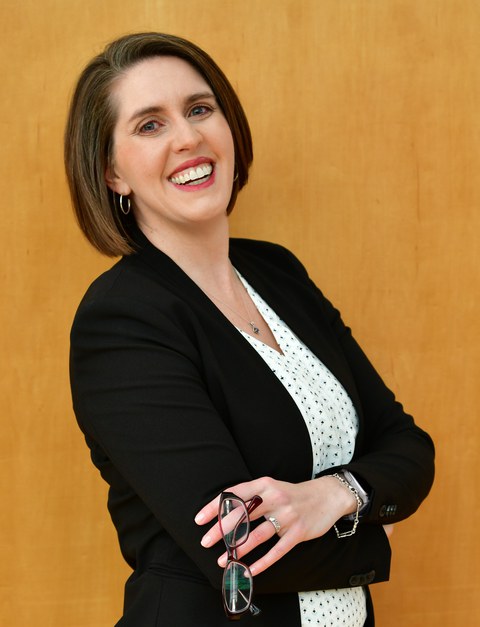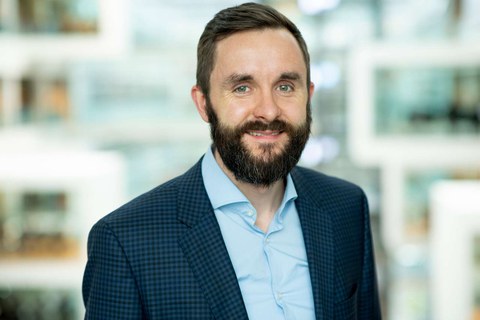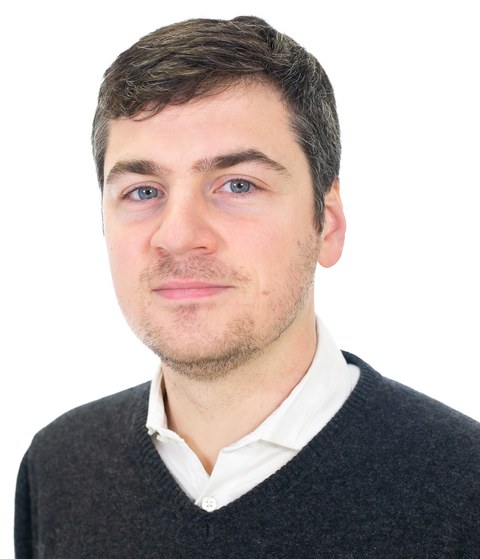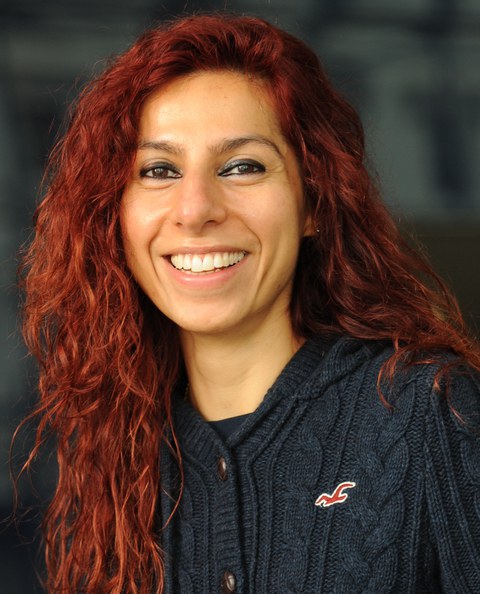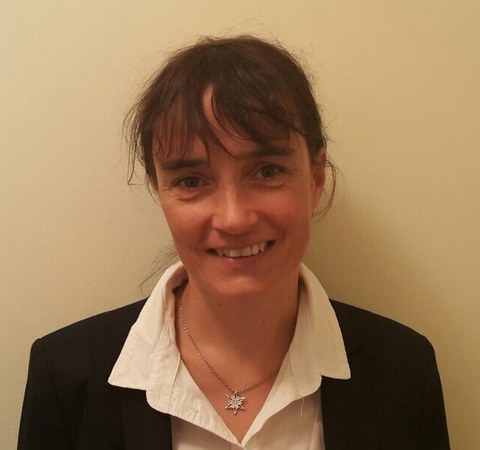Our Fellows
Table of contents
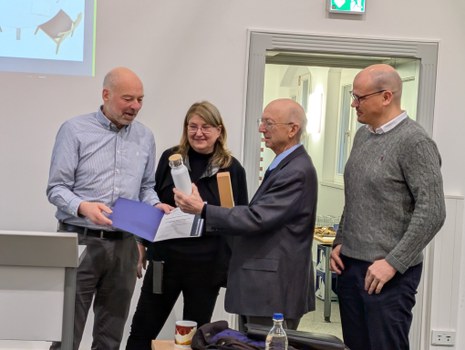
© Uta Schwarz
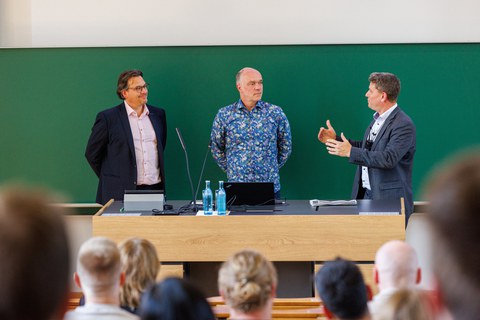
Sven Anders from the University of Aberta with his hosts Christian Leßmann and Dominik Möst © Klaus Gigga
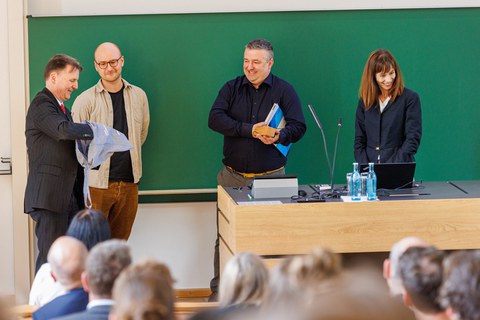
Ciprian Domnisoru (Aalto School of Business) together with his hosts Kamila Cygan-Rehm and Andreas Leibing and the Dean, Michael Schefczyk © Klaus Gigga

© Klaus Gigga
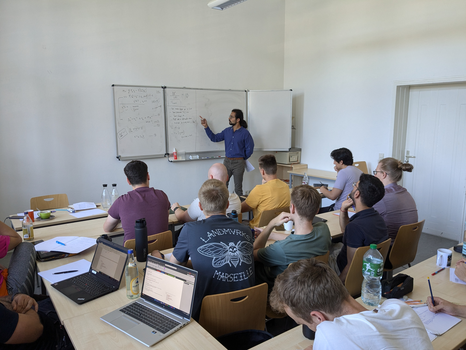
Bismark Singh (University of Southampton) with the students of his PhD seminar Chance-constrained Programming. © Florian Linß

Bismark Singh together with Dominik Möst, Marcel Thum, Tristan Becker and Udo Buscher © schwarz
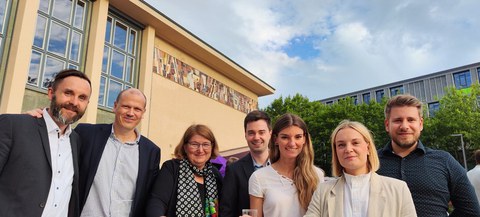
Oliver Krancher (IT University Copenhagen) together with professors and research associates from the Business Information Systems group. © wibe

Michael Schefczyk and Dimitrios Xefteris (University of Cyprus) © schwarz

Elizabeth Embry (University of Kansas Business School) and Michael Schefczyk © schwarz

Benoit Chevalier Roignant (emlyon Business School) and Michael Schefczyk © wiwi

Ramteen Sioshansi with his host Dominik Möst © ee2

At his award ceremony, Mike Hewitt (Loyola University Chicago) spoke about "Data-driven Optimization Model Customization". © wiwi

Mike Hewitt and the team of the Chair of Business Administration, esp. Industrial ManagementChicago. © im

In her research talk, Kathrin Kirchner (Technical University of Denmark) spoke about the joint project with the Chair of Business Engineering: "Algorithms as Managers – Mitigating Harmful Effects on the Well-being of Platform Workers". © wiwi

Michaelis Drouvelis with reasearch associates of the Chair of Economics, esp. Public Economics © fiwi

Piyush Sharma (Curtin University Perth) spoke in the colloquium about the challenges on the way to become a researcher. © schwarz

Ilan Oshri, Julia Kotlarsky (both University of Auckland), Martin Wiener and Susanne Strahringer © wibe
2026
Professor Russell McKenna, ETH Zürich
Guest at the Chair of Business Administration, in particular Energy Economics
(Prof. Dr. Dominik Möst)
Russell McKenna has been Professor of Energy Systems Analysis in the Department of Mechanical and Process Engineering (D-MAVT) at ETH Zurich and Head of the Laboratory of Energy Systems Analysis at the Paul Scherrer Institute (PSI) since 2022. Previously he was Professor of Energy Transition at the University of Aberdeen, UK, and Professor of Energy Systems Analysis at the Danish Technical University (DTU), respectively. His postdoctoral years were spent at the Chair of Energy Economics at Karlsruhe Institute for Technology (KIT), from 2009 to 2018, where he obtained his Habilitation in Betriebswirtschaftslehre (BWL, industrial management). At the University of Bath, UK, he studied Aerospace Engineering and obtained a PhD in Mechanical Engineering/Economics specializing in Industrial Energy Efficiency. His research focusses on the holistic interdisciplinary assessment of energy technologies and systems and in the development and application of energy system models, as well as in developing methods for resource assessments for low carbon technologies using open data.
2025
Professor Sven Anders, University of Alberta
Guest at the Chair of Economics, in particular International Economics (Prof. Dr. Christian Leßmann) and the Chair of Business Administration, in particular Energy Economics (Prof. Dr. Dominik Möst)
Sven Anders is Professor of Resource Economics and Director of Graduate Porgrams in the Department of Resource Economics and Environmental Sociology at the University of Alberta. He received his PhD degree in Agricultural Economics from the Justus-Liebig University, Giessen, Germany. Before joining the University of Alberta he was a Postdoctoral Fellow at the Food Marketing Policy Center at the University of Massachusetts.
Using econometric and experimental economic methods his research seeks to provide insights into both consumer and firm behaviour with a focus on advancing policy and welfare outcomes. More recently, his research has expanded into the economics of energy transition at the interface of technology innovation and the evolving public risk-benefit perceptions of an expanding renewable energy supply.
Assistant Professor Ciprian Domnisoru, Aalto School of Business
Guest at the Chair of Quantitative Methods, in particular Econometrics
(Prof. Dr. Kamila Cygan-Rehm, Dr. Andreas Leibing)
Ciprian Domnisoru is an Assistant Professor of Economics and Data Science at the Aalto School of Business, Helsinki GSE and an IZA Research Fellow. He previously worked as a postdoctoral scholar at UC Berkeley and completed his PhD at Carnegie Mellon University. His research in Labor Economics and the Economics of Education combines reduced form and structural approaches. He is particularly interested in how labor market institutions and educational policies affect upward mobility, and has published or has forthcoming work on such topics as school quality, competition between higher education providers, compulsory schooling laws, teacher gender, college subsidies, mismatch in labor markets, student loans and long-term effects of welfare programs.
Associate Professor Thomas Lambert, Rotterdam School of Management, Erasmus University
Guest at the Chair of Business Administration, in particular Finance and Financial Technology (Prof. Dr. Lars Hornuf)
Thomas Lambert is Associate Professor of Finance and Academic Director of the MSc in Finance and Investments at the Rotterdam School of Management, Erasmus University. His research interests are in Corporate Finance, Entrepreneurship, FinTech, and Political Economy. His work has been presented at major conferences around the world, including the NBER Summer Institute, AEA, EFA, SFS Cavalcade and FIRS meetings, and published in leading academic journals, including the Economic Journal and Management Science. He received several grants, including a Veni grant from the Dutch Research Council (NWO). Thomas holds a PhD degree in Finance from the Université catholique de Louvain, an MA in Economics from the Université catholique de Louvain and has been a visiting scholar at the London Business School and HEC Paris. He was also awarded the 2016 Banque de France Foundation Prize for the best thesis in Monetary and Financial Economics and the 2020 ERIM Prize for Outstanding Performance by a Young Researcher.
Shaughnessy Endowed Professor Fred Niederman, Saint Louis University
Guest at the Chair of Business Information Systems, in particular Business Engineering
(Prof. Dr. Martin Wiener) and the Chair of Business Information Systems, in particular Information Systems in Industry and Trade (Prof. Dr. Susanne Strahringer)
Fred Niederman has served as Shaughnessy Endowed Professor in Management and previously in Management Information Systems at Chaifetz Business School since August 1999. Prior to that he was affiliated with the University of Baltimore, part of the University of Maryland System (USA). He holds a PhD from the University of Minneapolis, Carlson School of Business graduating in 1990.
Fred’s primary areas of research include: futures studies, philosophical aspects of IS, project management, IS personnel, and group support systems. He is committed to a pluralist approach respecting the many conceptualizations and methods used in the field. He is also committed to a pragmatist orientation emphasizing the utility of accumulated knowledge along with its “truth” and accuracy.
Fred was selected as a Fellow of the Association for Information Systems in 2020. He served as editor in chief for Communications of AIS 2020-2023. He has more than 36,000 downloads of his papers with ACM digital library and more than 13,000 with the AIS digital library. He has more than 5700 citations (Google Scholar). He recently published a monograph on Process Theory with NOW publishing. He has published 95 papers in peer reviewed journals. His work on the co-evolution of IT worker skills and generations of technology platforms received a ‘publication of the year’ by the AIS College of Senior Scholars. He has served as senior editor for Journal of AIS, selected twice as senior editor of the year. He has served as program chair for ICIS (2010) and as a member of the ICIS doctoral consortium faculty members (2018). He is recognized as a member of the “circle of compadres” for the KMPG PhD Project.
2024
Assistant Professor Elizabeth Embry, University of Kansas Business School
Guest at the Junior Professorship in Sustainability Assessment and Policy
(Jun.-Prof. Dr. Samanthi Dijkstra-Silva)
Elizabeth Embry is an Assistant Professor in the Management and Entrepreneurship area at the University of Kansas School of Business. She researches entrepreneurial opportunities to address pressing social issues, namely climate change and racial inequality. With a background in public health and disaster management, she specifically focuses on innovations in the built environment to enhance sustainability and the engagement of biophilic design, as well as entrepreneurial cross-sectoral partnerships to address climate change and strengthen community resilience. Her work has been published in Organization Science, Frontiers of Entrepreneurship Research, Business and Society, Journal of Health Administration, Public Health Reports, The Handbook on the Business of Sustainability and The Handbook of Inclusive Innovation.
Beth earned her doctoral degree in entrepreneurship and strategy from the University of Colorado Boulder. Additionally, she holds a Masters of Public Health from Boston University and Masters of Business Administration from Saint Louis University.
Before starting her doctoral program, Beth was the Director of Global Health at Saint Louis University’s College for Public Health and Social Justice. She has also worked in a variety of global contexts focused on health system strengthening, program development, and capacity building for complex humanitarian aid.
Associate Professor Oliver Krancher, IT University of Copenhagen
Guest at the Chair of Business Information Systems, esp. Business Engineering (Prof. Dr. Martin Wiener)
Oliver Krancher is an Associate Professor in the Business IT department at the IT University of Copenhagen and the Head of the BSc in Global Business Informatics. He holds a PhD from the University of Bern. Before his academic career, he worked as a consultant at a major software implementer.
His research revolves around information systems sourcing, project management, and automation, often with a focus on learning. He has published in information systems and software engineering journals, including the Journal of Management Information Systems, the Journal of the Association for Information Systems, the European Journal of Information Systems, Empirical Software Engineering, and Information & Software Technology. He is an Associate Editor at the Journal of the Association for Information Systems, a Special Issue Senior Editor at the Journal of Information Technology, and has regularly served as a Track Chair at conferences such as the European Conference on Information Systems. He has received the AIS SIG Sourcing Early and Mid-Career Award, the McKinsey Business Technology Award, the ITU Excellence in Teaching Award, and the AIS Innovation in Teaching Award.
Associate Professor Bismark Singh, University of Southampton
Guest at the Junior Professorship in Business Administration, esp. Management Science (Jun.-Prof. Dr. Tristan Becker)
Bismark Singh is an associate professor in operational research in the School of Mathematical Sciences at the University of Southampton, UK since 2022. He received a habilitation in mathematics from the Friedrich-Alexander-Universität Erlangen-Nürnberg, Germany in 2023. He received his PhD and MSc degrees in 2016 and 2013, respectively, in operations research with a focus on mathematical optimization at The University of Texas (UT) at Austin, US; additionally, he received a portfolio in scientific computation here. He received his B.Tech. degree in chemical engineering from the Indian Institute of Technology (IIT) Delhi in 2011. Between 2016 and 2019 he held positions at Sandia National Laboratories, US in the Discrete Math & Optimization group. In 2017, he also worked at the Karlsruhe Institute of Technology, Germany as a postdoc and at the Stockholm Environment Institute, Estonia as a senior expert.
Data-driven decision-making under uncertainty (particularly using discrete stochastic optimization models) - formulations, algorithms, and applications - is his key area of interest. His research has been successfully funded by agencies including the Deutsche Forschungsgemeinschaft (DFG), the Horizon 2020 program, the Bavarian State Ministry for Science and Art, and the US Department of Energy. His research has been published in several multidisciplinary journals encompassing a range of disciplines transcending mathematics: including computer science, operations research, and data science and also spanning learning, epidemiology, and public policy. He is a Senior Member of IEEE, a Fellow of Institute of Mathematics and its Applications, and an Associate Fellow of The OR Society. He is also the Winner of the 2023 Mathematics Young Investigator Award. He is a panel member of the London Mathematical Society.
Associate Professor Dimitrios Xefteris, University of Cyprus
Guest at the Chair of Economics, esp. Public Finance (Prof. Dr. Marcel Thum)
Dimitrios Xefteris is an Associate Professor in the Department of Economics at the University of Cyprus. He earned a Ph.D. in Economics from Universitat Autònoma de Barcelona in 2009, having previously obtained an M.Phil. in Economic Analysis and a Degree in Economics and Politics. His research, spanning Political Economics, Game Theory, and Behavioural Economics, has resulted in several peer-reviewed articles. Notable publications include works in the American Economic Review, American Political Science Review, American Journal of Political Science, Journal of the European Economic Association, and the Economic Journal. His research contributions extend to diverse topics, such as voting rights, agenda control, information aggregation, and electoral competition. Dimitrios has visited several European universities in the recent years, including King's College, London, ENS Paris-Saclay, Universitat de Barcelona and received competitive awards and grants, including the Biennial Research Award of the University of Cyprus for overall research accomplishment (2019), British academy fellowship (2018), Young Researcher in Social Sciences award (2016), and several grants from the Cyprus Research Foundation. Since 2022 he also serves as an Associate Editor for Mathematical Social Sciences. Invited talks and discussions include the Voting and Governance Conference at Yale University, the ETH Workshop on Democracy in Zurich, and seminar series at Stanford University, University of Cambridge, University of Mannheim, Universidad Carlos III de Madrid, and the Paris School of Economics.
2023
Professor Nejat Anbarci, Durham University
Guest at the Chair of Economics, esp. Public Finance (Prof. Dr. Marcel Thum) and the Chair of Economics, esp. International Economics (Prof. Dr. Christian Leßmann)
Nejat was born in Istanbul in 1959. He obtained his undergraduate and master’s degrees from Bogazici University (in Istanbul, Turkey) in business administration (1982) and economics (1985) respectively. He was awarded a PhD degree in economics by the University of Iowa (in the USA) in 1988. He first served as an assistant professor at the State University of New York at Buffalo during 1988-1995; he then served as an associate professor and full professor at the Florida International University during 1995-2008, and as a professor at Deakin University (in Melbourne, Australia) during 2008-2018. Since 2018, he has been serving as a professor at Durham University in the UK. Nejat served as the Department Head of Economics and Finance at Durham University (2019-2021) and the Department Head of Economics at Deakin University (2010-2012) as well. His research interests are Microeconomics, Game Theory, Bargaining Theory, Behavioral Economics, Experimental Economics, and Political Economy of Natural Disasters, among others. He published at journals such as Quarterly Journal of Economics, Management Science, International Economic Review, Journal of Economic Theory, Journal of Public Economics, Games and Economic Behavior, among others. Nejat received major grants from funding agencies such as the Australian Research Council and the Social Science Research Council. His Erdos number is 3.
Associate Professor Benoit Chevalier-Roignant, emlyon Business School
Guest at the Chair of Business Administration, esp. Energy Economics (Prof. Dr. Dominik Möst)
Benoît has been an Associate Professor in Quantitative Finance and Economics at emlyon business school since September 2020. Prior to that, Benoît was affiliated to Cranfield University (UK), King’s College London (UK), and The University of Texas at Dallas (USA). He holds a PhD from WHU Otto Beisheim School of Management.
Benoît’s primary area of research is the use of dynamic optimization techniques (stochastic control, dynamic games) for the study of various topics at the interface between finance and operations, investigating, for instance, how market uncertainty and strategic reactions affect a firm’s capital-budgeting decisions on capacity expansion, innovation investments, production flexibility and market entry in uncertain competitive environments. Benoit is convinced that such techniques can help derive interesting novel insights about the functioning of energy markets.
Benoît published a research monograph at The MIT Press and academic papers in peer-reviewed journals such as Operations Research, Production & Operations Management, Journal of Economic Dynamics and Control and the European Journal of Operational Research.
Associate Professor Maha Shaikh, Kings College London
Guest at the Junior Professorship in Business Information Systems, esp. Management Analytics (Prof. Dr. Karoline Glaser)
Maha's primary area of research is open source software development. The theoretical issues driving her research include the dynamics of learning and organizing in open source collectives, material agency, digital and open innovation, and algorithmic work. Prior to joining King’s College London, she was an Associate Professor of Information Systems at Warwick Business School. At the latter school she was course director of the main IS programme, MSc MISDI and organised research seminars where top IS scholars were invited to present and discuss their work. Maha holds a PhD in Information Systems from the LSE.
Her past affiliations include the LSE with a joint appointment with LERO Research Centre in Limerick, Ireland, as well as Imperial College Business School. Maha is a founding member of the AIS Special Interest Group on Open Research and Practice. She serve as AE for different tracks for ICIS and ECIS conferences, and AE for the OCIS Division for the AOM conference. Maha was an elected international representative at large for the OCIS division for the Academy of Management (AOM) – 2016-2019. She was also an Associate Editor for Information Systems Research (ISR) – 2018-2021.
2022
Professor Mike Hewitt, Loyola University Chicago
Guest at the Chair of Business Administration, esp. Industrial Management (Prof. Dr. Udo Buscher)

Professor Mike Hewitt, Loyola University Chicago
Mike is a Professor in the Information Systems and Supply Chain Management Department in the Quinlan School of Business at Loyola University Chicago. He also serves as the Faculty Director of its Supply Chain and Sustainability Center. Effective, July 2022 he will hold the Ralph Marotta Endowed Chair in Free Enterprise.
He holds a PhD in Industrial and Systems Engineering from the Georgia Institute of Technology.
His research focuses on developing quantitative models of decision-making processes found in the transportation and supply chain management domains, particularly in freight transportation and home delivery. He has published numerous articles documenting his research in journals such as INFORMS Journal on Computing, Operations Research, and Transportation Science. His work has won multiple prizes and assisted the decision-making of companies such as Bayer Crop Science, Exxon Mobil, Saia Motor Freight, Schneider, and Yellow Roadway. He has collaborated on research projects with individuals at universities around the world, including multiple visiting appointments. His research has been funded by agencies such as the National Science Foundation, the Material Handling Institute, and the New York State Health Foundation.
He actively supports his profession through leadership roles in his professional society, including serving as President of the INFORMS Transportation Science and Logistics (TSL) Society in 2021. He has also played a leadership role in organizing multiple academic events, including hosting the 2023 TSL Conference at Loyola University Chicago. He serves on editorial boards of multiple academic journals. Before entering the PhD program at Georgia Tech, Mike worked as a software engineer, contributing to the development of software to support consumer set-top boxes and LED signs in mass transit stations.
About the joint research project:
Public transportation is critical to sustainable societal development and success. However, access to and availability of public transportation is often limited by municipal budgets. A large budgetary line item for many public transportation systems is labor. Yet, there may also be flexibility with respect to how much and when labor is used to support transportation offerings. Intelligently leveraging that flexibility can enable a transportation system to reduce its costs, expand its service offerings, and increase access to its services via lower fares. This research – to be done in collaboration with the TU Dresden host Udo Buscher - will focus on developing optimization-based algorithms for leveraging such flexibility.
More specifically, this project will focus on public rail networks and rail conductors. The algorithms will design work schedules for conductors while recognizing that not every rail trip requires a conductor. At the same time, the presence of conductors on a rail trip can impact passenger safety and their perception of service quality as well as the ability of the transportation provider to generate revenues through fares. Thus, the algorithms will explicitly recognize these different performance factors when designing conductor work schedules. This research will be done in collaboration with an industrial partner managing a public rail transportation network in Germany, ensuring that the algorithms are effective and impactful in practice.
Associate Professor Kathrin Kirchner, Technical University of Denmark
Guest at the Chair of Business Information Systems, esp. Business Engineering (Prof. Dr. Martin Wiener)
Kathrin is Associate Professor of Knowledge Sharing and Business Analytics at the Technical University of Denmark (DTU) in the Department of Technology, Management, and Economics. She holds a PhD in Information Systems from Friedrich Schiller University Jena, Germany. Kathrin's research interests cover virtual collaboration and distance work, digital platforms, the impact of using artificial intelligence in organizations, and employees' well-being. Her work is published in information systems and management journals like the Academy of Management Learning and Education, Journal of Knowledge Management, Online Information Review, and Artificial Intelligence Review. She is co-editor in chief of the International Journal of Workplace Health Management.
For more details, see Kathrin's webpage at DTU:
https://orbit.dtu.dk/en/persons/kathrin-kirchner
About the joint research project:
Digital labor platforms include web-based platforms, where tasks are outsourced to the crowd (e.g., programming), and location-based platforms (e.g., food delivery) allocate work to workers in a specific area. These platforms apply self-learning algorithms on two dimensions: (1) matching supply and demand and (2) controlling and monitoring workers' behavior. Algorithms can thus complement or even fully substitute the human manager. Platform workers are often concerned, as they feel constant surveillance, lack of transparency, and dehumanization.
In the joint research project together with TU Dresden host Prof. Dr. Martin Wiener, we investigate the well-being of platform workers influenced by the algorithmic manager, the type of employment, and external support, e.g., by workers' unions.
The research will build theory in algorithmic management. Qualitative and quantitative data will help build and validate a theoretic model. The study thus aims to strengthen the knowledge and experience of the involved partners in the relatively new research field of algorithmic management
Professor Richard McFarland, ESSEC Business School, Paris
Guest at the Chair of Entrepreneurship and Innovation (Dr. Martina Pieperhoff)
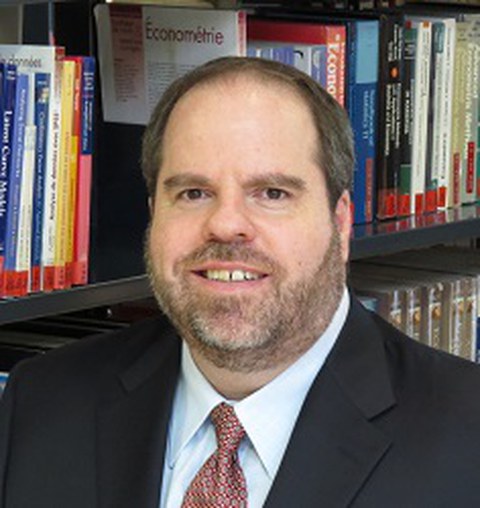
Professor Richard McFarland, ESSEC Business School, Paris
Richard (Rick) G. McFarland is a Full Professor of Marketing at ESSEC Business School in France. Before joining ESSEC, he was a tenured faculty member in the United States at both West Virginia University and at Kansas State University where he held the L. L. McAninch Endowed Chair of Business Administration. He received his Ph.D. at Georgia Institute of Technology.
Richard conducts research primarily in the areas of professional selling and sales management, marketing channels, and business-to-business marketing. He has been at the forefront of advancing our theoretical understanding of influence tactics effectiveness in both personal selling interactions and within business-to-business relationships. Other published research, for example, has advanced our understanding of adaptive selling and emotional intelligence in the sales area, and has advanced transaction costs economics and institutional theory in the area of inter-firm relationship governance. His research has appeared in a number of leading journals, including Journal of Marketing, Journal of Marketing Research, Journal of the Academy of Marketing Science, Journal of Personal Selling & Sales Management, and Marketing Letters. He also serves on the editorial review boards of the Journal of Retailing, and the Journal of Personal Selling & Sales Management where he was twice awarded the best reviewer of the year award and he was on the editorial board of Journal of Marketing under three different editors.
He has won numerous awards for his research and teaching. These include the Ralph Reitz award for the single best teacher of the year in the Business College at Kansas State University, the best single researcher award in the Business College at Kansas State University on two occasions, The Louis Stern Award in 2016 for the most long-term, impactful research article in inter-organizational research, an Emerald Literati Award in 2019 for a paper published in the European Journal of Marketing, and the 2020 James M. Comer Award for the best contribution to selling & sales management theory for a single author paper published in the Journal of Personal Selling & Sales.
About the joint research project:
This proposal answers the call for more research on trust recovery in business-to-business relationships (Shamsollahi et al. 2021). An essential quality of trust is that it is fragile. It takes a long time to build mutual trust yet a single negative event can destroy it. Thus, there is asymmetry between the efforts needed for creating trust and the ease of destroying it (Slovic 1993). As the business environment becomes more dynamic and competitive, many firms are faced with the increasing threat from eroding and violation of trust in partnerships. Along with trust building and maintenance, trust repair capability is now one of key factors for the success of strategic partnerships (Kramer and Lewicki 2010).
Trust has both cognitive and emotional components. Thus, in the context of trust violations, one needs to consider the reactions of the victim at both cognitive and emotional levels (Lewicki and Bunker 1996). Almost all extent research on trust repair adopts a cognitive approach to trust, unfortunately, research exploring the emotional aspect of trust violation and recovery is scant. Along with TU Dresden host Dr. Martina Pieperhoff, this research will develop theory regarding the victim’s emotional response to a trust violation, and how the violator can repair that trust. Specifically, our context is the dyadic relationship between a professional salesperson and professional buyer within business-to-business relationships. This research explores the different types of emotional responses victims’ experience, and proposes that the timing of the trust recovery attempt by the salesperson (e.g., an apology) has an effect on trust recovery success.
Professor Jeffrey Parsons, Memorial University of Newfoundland
Guest at the Chair of Business Information Systems, esp. Intelligent Systems and Services (Prof. Dr. Benedikt Brendel) and the Research Group Digital Health (Dr. Hannes Schlieter)
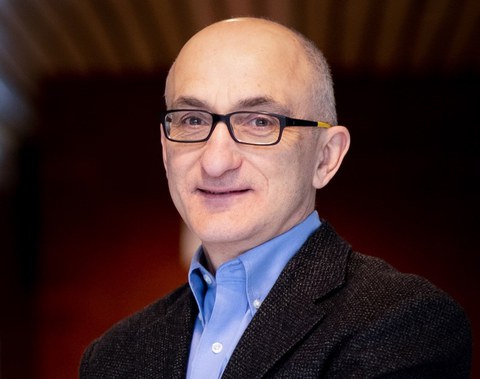
Professor Jeffrey Parsons, Memorial University of Newfoundland
Jeffrey is a University Research Professor and Professor of Information Systems in the Faculty of Business Administration at Memorial University of Newfoundland, Canada. Jeffrey joined Memorial University in 1993, where he served as associate dean (research) from 2003-2007 and 2008-2012.
Jeffrey holds a PhD in information systems from the University of British Columbia. His research interests focus on representing information in ways that better match how humans think about objects in their physical or social environment. Recently, his work focuses on the design of crowdsourcing systems to improve data quality and reusability. His research has been published in journals such as Nature, Management Science, MIS Quarterly, Information Systems Research, Journal of the Association for Information Systems, Journal of Management Information Systems, Communications of the ACM, ACM Transactions on Database Systems, and IEEE Transactions on Software Engineering. He holds research grants in Canada from the Natural Sciences and Engineering Research Council and the Social Sciences and Humanities Research Council and has served on grant committees for both funding councils. Jeffrey has served as program chair of the AMCIS, ER, WITS, and DESRIST conferences, and will be conference co-chair of AMCIS 2025, to be held in Montreal.
More information: https://www.business.mun.ca/our-people/faculty-instructors/jeffrey-parsons.php
About the joint research project:
There has been a major increase in knowledge production via crowdsourcing, wherein work (such as data collection) is done by members of the general public, rather than employees or others closely associated with an organization. In particular, observational crowdsourcing tackles ill-defined data collection tasks in which uses of data are fluid and evolving. In such cases, design choices need to accommodate diverse contributors and capture unpredictable data. Moreover, there is an opportunity to use digital technologies to improve data quality at the point of capture using interactive conversational agents.
The research – to be conducted in collaboration with the TU Dresden hosts Prof. Dr. Benedikt Brendel – will address platform design for observational crowdsourcing. First, we will develop a framework for observational crowdsourcing to support evolving or unknown (at the time data are collected) data uses. This framework will identify platform features that enable or inhibit data collection to support varied uses. For example, the use of fixed data entry options constrains data and limits its potential reuse. Second, the work aims to develop design principles to support data collection for observational crowdsourcing systems, including the use of interactive conversational agents to increase the level of data precision. Finally, the theory will be evaluated by implementing the design principles in a crowdsourcing platform to determine their effectiveness.
2021
Professor Michalis Drouvelis, University of Birmingham
Guest at the Chair of Economics, esp. Public Economics (Prof. Dr. Marcel Thum)
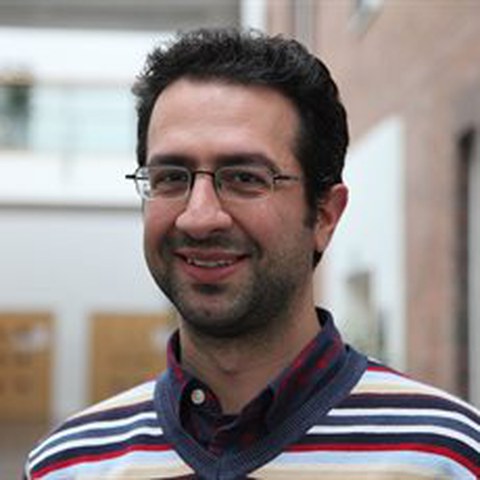
Professor Michalis Drouvelis, University of Birmingham
Michalis is a Professor of Behavioural Economics at the University of Birmingham, Department of Economics. Before coming to Birmingham, he was part of the experimental centres at the University of York, and the University of Nottingham.
Michalis' research interests lie in the area of behavioral and experimental economics. Recent research has focused on social preferences, on voluntary cooperation in the presence of free rider incentives, on expression of emotions and on coordination games. His work has been published in Games & Economic Behavior, Journal of Public Economics, European Economic Review, Journal of Economic Psychology, Experimental Economics, Theory and Decision, Southern Economic Journal, Journal of Behavioral and Experimental Economics and Economics Letters. Michalis is also affiliated with CESifo (Munich) and serves as Associate Editor for the Journal of Economic Behavior & Organization and Coordinating Editor for Theory and Decision.
More Information
About the joint research project:
Delegation characterizes many aspects of economic activities and has become a critical tool in modern business and organizations. In many organizational settings, decisions are delegated to third-party agents for a variety of reasons. For example, standard economic analysis of the principal-agent relationship suggests that principals are assumed to hire agents because delegation confers efficiency gains, as the agent either possesses special ability or has a lower opportunity cost of time or effort. Delegation may also exhibit a strategic dimension, for instance when the agent can credibly carry out tougher negotiations than the principal. The main focus of this research project is to gain a better understanding of principal-agent relationships by designing mechanisms that enable these advantages to be realized despite the fact that agents typically face different incentives and possess different information than the principals who employ them. In this project, we plan to extend the theoretical contribution by Konrad and Thum (2020, JPubET) by designing an experiment, which will examine the role of delegation in an ultimatum bargaining context. We consider ultimatum bargaining between a seller and a buyer of an asset who know each other's valuation of the asset. However, both can defer their decisions to delegates who have opaque preferences. We want to investigate whether players use this tool of delegation to opaque delegates strategically and to what extent it leads to an inefficient breakdown of negotiations.
Professor Julia Kotlarsky, University of Auckland Business School
Guest at the Chair of Business Information Systems, esp. Information Systems in Industry and Trade (Prof. Dr. Susanne Strahringer) and Chair of Business Information Systems, esp. Business Engineering (Prof. Dr. Martin Wiener).
Julia is a Professor of Information Systems at the University of Auckland Business School, New Zealand. She holds a PhD from Rotterdam School of Management, Erasmus University (Netherlands). Julia’s research interests revolve around technology sourcing and digital innovation in knowledge-intensive businesses. More recently, she has also started to study the interplay and interfaces between artificial intelligence (AI) technologies and human actors, focusing on data issues and digital transformation. Julia has published 16 books on technology, innovation and sourcing, and has written extensively about these topics in both managerial and academic journals including MIS Quarterly, Journal of Management Information Systems, Journal of Strategic Information Systems, Journal of Information Technology, and the Wall Street Journal.
Julia is the President of a newly established Association for Information Systems (AIS) Special Interest Group on Advances in Sourcing. She serves as a Senior Editor for the Journal of Information Technology. For full details and a list of her publications see Julia’s University of Auckland web page at https://unidirectory.auckland.ac.nz/profile/jkot131
About the joint research project:
The pace of new technological developments and trends such as the emergence of big data and the Internet of Things (IoT) have pushed many companies towards digital transformation – a process that typically involves efforts to significantly re-design and digitize business processes, and/or establish new digital revenue streams that rely on (real-time) data from multiple sources.
The proposed research project—to be conducted in collaboration with the TU Dresden hosts Prof. Dr. Martin Wiener and Prof. Dr. Susanne Strahringer—aims to investigate and develop a process theory on different, context-dependent digital transformation paths for companies that set forth to become a data-driven organization (i.e., an organization that relies on data as a core element for creating and capturing value).
This research is designed as a theory-building study. The empirical part of the project will involve the collection of qualitative data in multiple organizations to capture the temporal perspective of how data, supporting infrastructure, business processes, and organizational roles evolve throughout the timeline of the digital transformation journey.
Professor Piyush Sharma, Curtin University Perth
Guest at the Chair of Business Administration, esp. Marketing (Prof. Dr. Florian Siems)
Piyush "Pi" Sharma has more than thirty years’ experience in industry and academics in India, Singapore, Hong Kong and Australia. Before joining Curtin University, he served as Associate Professor of Marketing, Deputy Program Director (MBA), Associate Dean (Internationalization) and Director (Asian Centre for Branding and Marketing) at the Hong Kong Polytechnic University. He serves as the Associate Editor for Journal of Business Research and has served in the past as Co-editor for Marketing Intelligence & Planning, Associate Editor for Journal of Services Marketing, Senior Editor (Marketing) for International Journal of Emerging Markets, and Regional Editor (Asia) for Journal of Knowledge Management. He also serves as a member on the editorial boards of Journal of International Business Studies, Journal of the Academy of Marketing Science, Journal of Service Research, European Journal of Marketing, Journal of Knowledge Management, Journal of Service Theory and Practice, International Journal of Emerging Markets, Journal of Creative Communications, and Journal of Indian Business Research.
Professor Sharma has published ninety articles on topics ranging from cross-cultural consumer behavior to branding and marketing strategy, services and international marketing to multi-disciplinary topics, in major international journals including Journal of International Business Studies, Journal of the Academy of Marketing Science, Journal of Service Research, Journal of Business Research, Industrial Marketing Management, International Business Review, European Journal of Marketing, Journal of Service Management, Asia Pacific Journal of Management, Psychology & Marketing, Journal of Advertising, Journal of Marketing Management, Journal of Service Theory and Practice, and Journal of Services Marketing, among others. He has also presented his research at more than one hundred international conferences and has delivered keynote speeches as well as conducted research workshops around the world, in Asia (China, India, Hong Kong, Indonesia, Singapore, Malaysia, Thailand and Vietnam), Europe (France, Greece, Italy, Portugal, Netherlands and UK) and North America (Canada and USA).
More information
About the joint research project:
As a Distinguished Research Fellow in the Faculty of Business and Economics at Dresden University of Technology, Professor Sharma would work very closely with the PhD students and early-career researchers in the Chair of Marketing research team to help them expand their network and activities by leveraging his extensive experience and connections across the globe. He expects to foster innovative ideas and develop meaningful collaborations by working with the researchers individually and in small teams. He would also deliver talks and conduct seminars and workshops to help the researchers in the Faculty of Business and Economics develop their research skills and knowledge to be able to publish papers in top journals.
Professor Ramteen Sioshansi, Carnegie Mellon University
Guest at the Chair of Business Administration, esp. Energy Economics (Prof. Dr. Dominik Möst)
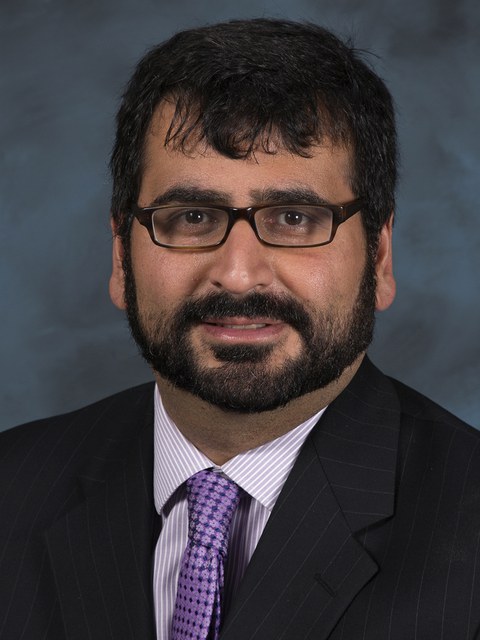
Professor Ramteen Sioshansi, Ohio State University
Ramteen Sioshansi is a professor in the Department of Engineering and Public Policy and in the Department of Electrical and Computer Engineering at Carnegie Mellon University. He serves also as the director of the Carnegie Mellon Electricity Industry Center. His research focuses on the integration of advanced energy technologies, including renewables, energy storage, and electric transportation, into energy systems. He works also in energy policy and electricity market design, especially as they pertain to advanced energy technologies. He served three two-year terms on Electricity Advisory Committee, a federal advisory committee to U.S. Secretary of Energy, and chaired its Energy Storage (Technologies) Subcommittee. He is an IEEE Fellow.
More Information
About the joint research project:
The aim of this work is to understand how markets and policies should be structured to facilitate the integration of energy storage into electricity systems. Energy-storage systems are becoming more viable technical solutions to mitigating power-system issues. This includes using energy storage for asset-investment deferral, generation shifting, end-user applications, and management of renewable-energy supply. Contemporaneously, the cost and technical performance of energy storage is making the technology competitive with other “more traditional” solutions to addressing these types of power-system challenges.
Despite this growing and recognized role that energy storage can play in electricity systems, there are different visions of how to incorporate energy storage into power-system operations and planning. North American markets have evolved over time towards a paradigm that is based on tight centralized co-ordination of the system. One can contrast this design with European markets, which rely to a greater extent on decentralized decision making. It is within this context that our proposed project “lives.” The underlying and fundamental question that we will address is what mix of the prevailing market-design principles that are applied in European and North American markets can allow for the integration of energy storage into power systems most efficiently.

